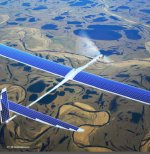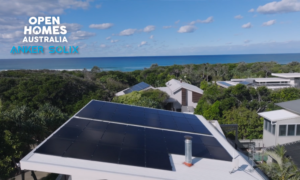The world’s first atmospheric satellite is powered by the sun and boasts a mission range of over 4 million kilometres.
Designed to stay aloft for up to 5 years, the Titan Solara 50 positions itself well above sun-blocking clouds and violent weather.
The Solara 50 is launched at night using power from its battery banks. When the sun rises, solar power then provides the energy for it to take up position 20km above the Earth’s surface. A precision batter management system ensures voltage and thermal thresholds are maintained in the subzero atmosphere.
15.5 metres long and with a wingspan of 50 metres; the UAV can cruise at speeds of around 104 kilometres an hour.
The Solara 50 can be used in multiple applications, such as mobile communications. Able to provide coverage of over 17,800 square kilometres, a single Solara platform has the reach of over one hundred terrestrial cell towers. Other applications include disaster recovery and pipeline, fire, pollution and weather monitoring.
“Titan Aerospace is revolutionizing near-earth applications for dozens of industries,” says the company. “The ability to park a stationary payload directly above a specific point is opening dramatic new possibilities and redefining the landscape.”
The Solara 50 has a payload capability of around 32 kg; which may not sound like a great deal, but given the lightweight nature of today’s electronics could allow for the craft to bristle with high-tech gadgetry. A new model, the Solara 60, will be capable of providing “atmospheric parking” for over 100 kg of payload.
The price? We guess rather expensive; but as Titan Aerospace point out:
“Payloads previously available only on satellites can now be lofted for a fraction of the cost by leveraging the persistent solar UAV platforms.”
In July, the company announced it had filed a core technology patent for its Solara UAV vehicles, incorporating from solar cell encapsulation to ultra-lightweight structural fabrication.














































